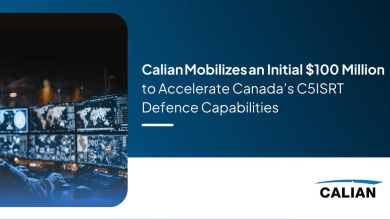
Spain Secures Historic Deal for 20 Eurofighter Jets to Modernize Its Air Force
The NATO Eurofighter and Tornado Management Agency (NETMA) has formalized a pivotal agreement for the procurement of 20 state-of-the-art Eurofighter aircraft. Referred to as the Halcon initiative, this order will facilitate the arrival of a squadron of E-Scan (Electronically Scanned) radar-equipped fighter jets, comprising 16 single-seater and 4 twin-seater models to replace the F-18 aircraft currently utilized by the Spanish Air Force on the Canary Islands.
This agreement will elevate the Spanish Eurofighter fleet to 90 jets. The inaugural delivery is slated for 2026, with these advanced aircraft set to enhance and strengthen the Spanish Air Force’s position among its NATO partners, featuring the most cutting-edge fighter jet engineered in Europe, while ensuring ongoing industrial activity through 2030.
‘This supplementary order underscores Spain’s dedication not only to the Eurofighter but also to its evolution and industrial ecosystem. I extend my gratitude to the client for their unwavering support of European defence during these critical times,” stated Mike Schoellhorn, CEO of Airbus Defence and Space.
The acquisition, estimated at € 2.043 billion, received endorsement from Spain’s Council of Ministers on 14 December 2021, encompassing the aircraft, engines, a simulator, and the requisite support services.
In operation with Spain since 2003, the nation’s air force manages the Eurofighter from the Morón (11th Wing) and Albacete (14th Wing) air bases, safeguarding Spain’s airspace and playing an integral role at the forefront of NATO in various Air Policing missions in the Baltics and more recently in the Black Sea. With the addition of these new aircraft, Spain will also outfit a third base with Eurofighter jets, specifically at Gando in the Canary Islands, home to the 46th Wing.
The Spanish Eurofighter is assembled, tested, and delivered at the Airbus facility in Getafe (Spain), with its industrial presence translating into over 20,000 direct and indirect jobs within Spain alone. Leading national defence and technological enterprises are engaged in the manufacturing process. Airbus has also been collaborating at Getafe in conjunction with the Armament and Experimental Logistics Centre (CLAEX) of the Spanish Air Force to implement various upgrades, including the introduction of the new CM02+ software package for the Tranche 1 Eurofighters. A significant tactical enhancement provided by this software is the new feature for automatic targeting of air-to-surface munitions following the integration of the Litening-III targeting pod. Additional air-to-air and air-to-surface capabilities have also been incorporated, including advancements to the communication systems.
Eurofighter stands as Europe’s preeminent defence initiative, engaging the four principal nations of the United Kingdom, Spain, Germany, and Italy. Beyond its advanced technological capabilities, it secures over 100,000 jobs across Europe. To this date, the Eurofighter programme has achieved 681 aircraft orders from 9 countries worldwide.










